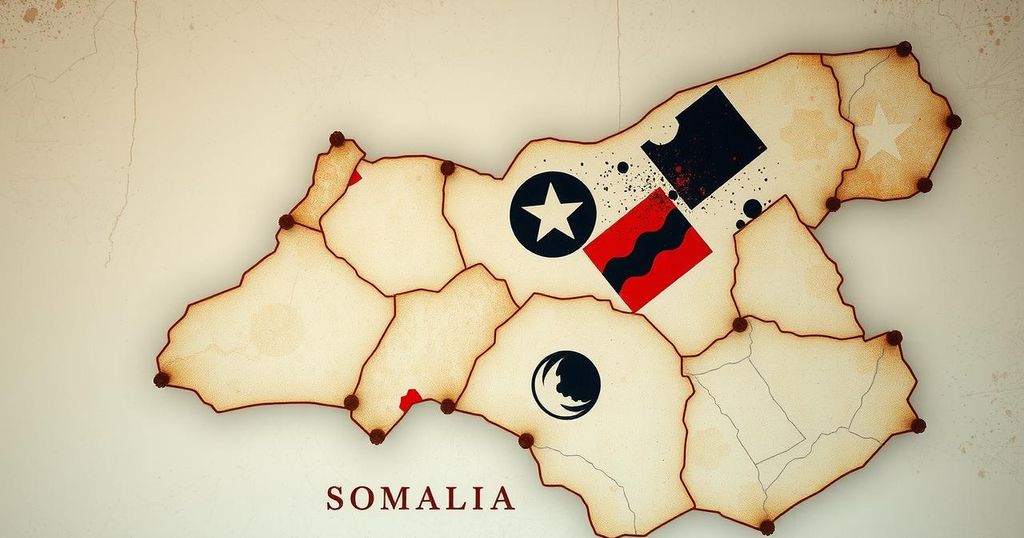Reflections on the Battle of Mogadishu: Three Decades After Black Hawk Down

The term ‘Black Hawk Down’ references a U.S. military operation in Somalia in 1993, resulting in numerous casualties for both Americans and Somalis. As a documentary is released, Somali survivors share their painful memories of that day. The narrative highlights both the immediate chaos and long-term emotional impact on families affected by the conflict, emphasizing the need for recognition and accountability.
The term “Black Hawk Down” has become a reference point for a disastrous U.S. military operation in Somalia in 1993, during which eighteen American soldiers died, alongside hundreds of Somalis. As Netflix releases a documentary on this event, the BBC interviews Somali survivors still affected by that day. In October 1993, despite ongoing civil war, Mogadishu residents enjoyed a sunny Sunday, unaware that a U.S. assault on warlord Mohamed Farah Aideed was imminent.
Initially deployed to support a UN humanitarian mission in 1992, U.S. troops became focused on Aideed following his accountability for the deaths of 24 UN peacekeepers. This resulted in a high-profile raid in July, claiming at least seventy Somali lives and escalating American military involvement. The intended brief operation on October 3, targeting Aideed, devolved into a lengthy confrontation lasting seventeen hours.
For Binti Ali Wardhere, then 24, the normalcy of the day was shattered by explosions that began around 3:30 PM. The intensity of the blasts prompted panic among residents, including Binti, who fled to the rooftop of a relative’s home for a view of the chaos unfolding in her neighborhood. Two U.S. Black Hawk helicopters were shot down, leading to ground troops being encircled and a desperate rescue attempt.
Binti eventually made her way home, relieved to find her family safe, but moments later, a shell struck their house, resulting in her injuries and the deaths of her husband and two sons. Reflecting on the horror of that day, she has vivid memories of the distraught scene and the heavy toll it took on her family, with one son suffering from lasting emotional scars.
Ahmed Mohamed Hassan, known as Ahmed Five, was a cameraman documenting the conflict. When the explosions occurred, he instinctively began recording the unprecedented violence, documenting significant aspects of the battle. His footage captured the chaos surrounding U.S. soldiers, including moments when a downed pilot, Michael Durant, was rescued, and was pivotal in shaping international perceptions of the events.
Although Haidar Badr witnessed U.S. forces treating wounded soldiers in her home, it did not lessen the tragedy of the day as her peaceful birth celebration turned into chaos. Her daughter, named Amina Rangers, serves as a lasting reminder of the turmoil experienced on that day. Ahmed emphasized the importance of capturing both sides of the conflict, providing a more balanced narrative for the world to see.
For those affected, like Binti, sharing stories does not suffice. The sufferings endured by Somali families remain largely unrecognized, emphasizing the necessity for acknowledgment and compensation for the devastation caused. The profound impact of the Mogadishu battle continues to resonate through the voices who witnessed and lived the tragedy.
The events of October 3, 1993, in Mogadishu, Somalia, marked a significant chapter in U.S. military history, particularly regarding intervention policies in Africa. Originally sent to assist in humanitarian efforts amid civil unrest and famine, U.S. troops shifted their focus to combatting warlords like Mohamed Farah Aideed after increased violence against UN forces. The resulting operation spiraled into a fierce confrontation, shaping perceptions of American military engagement abroad.
The documentary highlighting the Battle of Mogadishu sheds light not only on the American perspective but also on the deep scars left on Somali families. Survivors like Binti Ali Wardhere emphasize the need for acknowledgment and justice regarding the tragedies endured during the conflict. The events of that day continue to influence U.S. foreign policy and reflect the long-lasting impact of military interventions in foreign nations.
Original Source: www.bbc.co.uk








